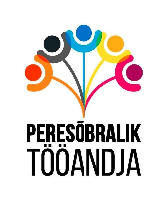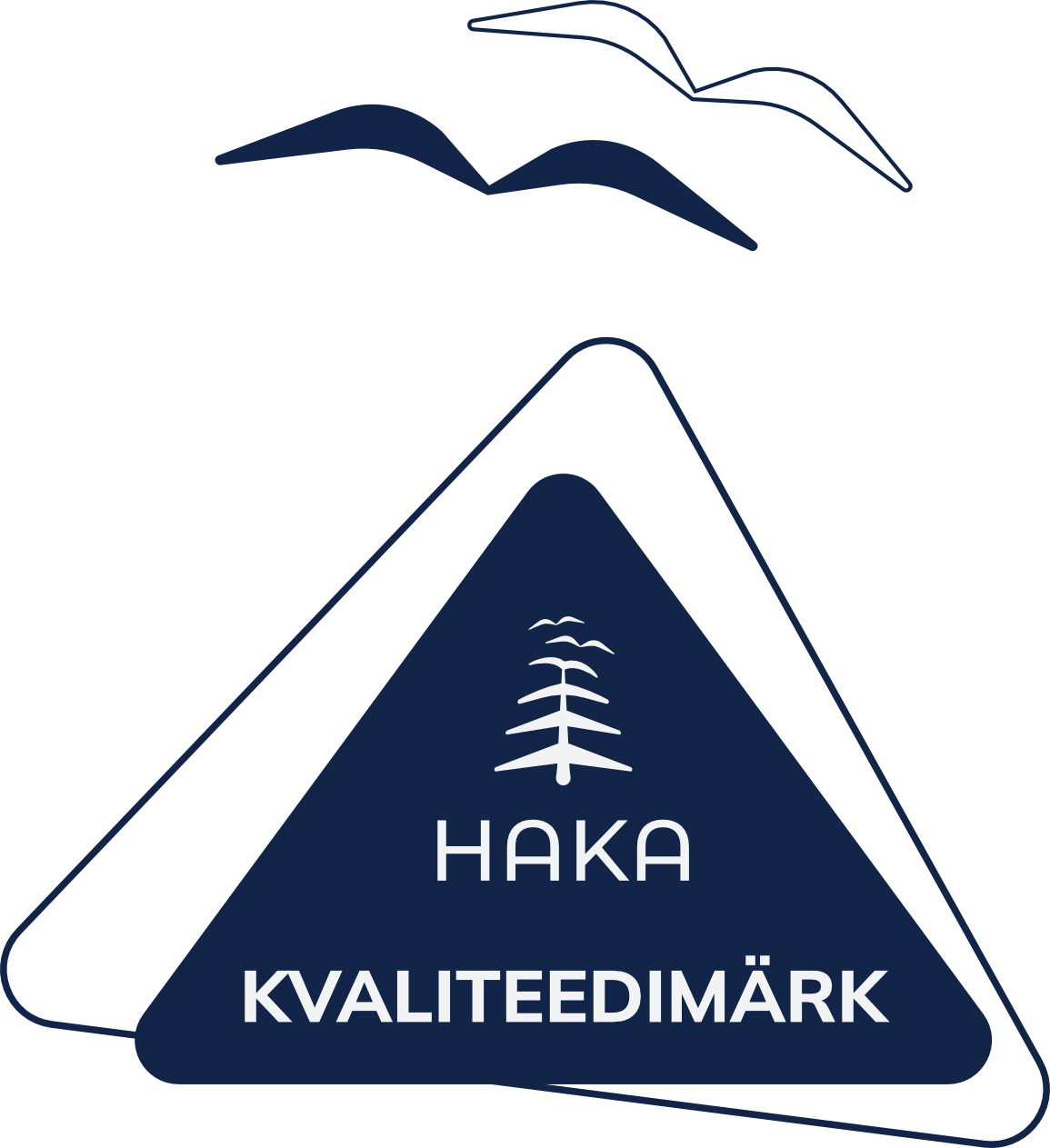All international students will have the status of International Visiting Students. International Visiting Students are students who do not have permanent Estonian citizenship or long-term residence permit. International Visiting Students are considered daily learners, meaning they must actively participate in the study process according to timetable and study schedule.
Study Systems
Study Information system TAHVEL
All the information regarding the studies at TTK UAS are managed through the study information system TAHVEL (tahvel.edu.ee). All students are required to have a TAHVEL account.
International Visiting Students will be registered to TAHVEL and given the TTK username and access information at the beginning of the exchange semester.
All subjects will be declared in TAHVEL according to the Learning Agreement. It is possible to change the Learning Agreement in the first two weeks of semester. It is not possible to change the declared subjects without the confirmed modification to the Learning Agreement.
The student is responsible of updating their contact information and personal data in the TAHVEL account. This can be done under Settings.
All official notifications from TTK UAS will be sent through the TTK UAS e-mail account. It is possible to redirect the notifications to the personal e-mail in TAHVEL.
MOODLE
Moodle (moodle.tktk.ee) is an online learning platform used at TTK UAS to give the student access to the study materials of most of the courses.
The access is with TTK UAS username. The first login has to be done with the original TTK username and password, but the password has to be changed during the first login under Settings. Video instructions are available here (in Estonian).
In case of access problems, please contact: haridustehnoloog@tktk.ee
With questions about a specific e-course, please contra the lecturer directly.
Facilities at TTK
All students can use TTK UAS’ public computers for study purposes that are located in the library, e-Learning Centre and in the classrooms. You can use any TTK desktop computer for printing and the printed materials can be obtained from public copy machines located in different spots in TTK UAS’ main building.
Printing, copying and scanning go through Print In City (ee.printincity.com) paid services by signing up. Go to settings and add an Estonian ID-card/Public Transport Card number or generate a Print in City PIN code. Purchase printing tickets via internet bank, Pay Pal, or credit card.
Printing from Print in City
- upload PDF file to your print account ee.printincity.com
- choose settings (Colored or Black and White, one-sided, etc)
- choose printpoint: Tallinna Tehnikakõrgkool
Printing from computers in the library
- open the file or the webpage you want to print
- choose file ⇒ Print (Ctrl + P) from the menu
- choose a printer (Colored or Black and White)
- insert your card number or PIN code to the pop-up window (Töö Kood), and click “Assign Job Code”
Put your ID-Card/Public Transport Card into the printer’s card reader or use the PIN code and press “prindi kõik” on the display.
Free WiFi is available in all the buildings of TTK UAS.
The Sports Centre is located in the B-wing of the main building. The Sports Centre has got a gym, a fitness studio, a court for ball games, and a room for table tennis.
All the training sessions are FREE of charge for TTK UAS international students.
The gym is booked on Thursdays from 10.30 to 12.30!
The class schedule for 2023/2024 academic year can be found here.
Study Regulations
- The academic year is divided into two semesters: fall semester and spring semester.
- 1 ECTS credit point is compatible with 26 hours of work, consisting of various study forms such as participating in lectures, seminars, independent work, group work, practical training, laboratory work, etc.
- The content of the subjects is described in the subject chart available in TAHVEL or is given by the responsible academic staff.
- The programme and schedule of subjects will be coordinated by responsible academic staff.
- After the official end of the semester, International Visiting Students will be issued the Transcript of Records. Confirmation of stay will be issued upon request.
- The Transcript of Records and confirmation of stay will be forwarded directly to the student concerned.
- The requirements concerning the content and results of academic work are equal for all students regardless of their form of study.
Student Rights and Obligations
- All Erasmus students have a right to use the study environment and study materials of TTK UAS free of charge, including the facilities in the sports centre.
- All students have a right to turn to support staff for counseling concerning studies at TTK UAS.
- All students have a right to consultations, according to the consultation schedule determined by academic staff.
- All students are requested to follow good academic conduct at TTK UAS.
- All students are requested to respect the deadlines and time schedules set by academic and supportive staff.
- All students are to respect the study regulations and the grading scale of TTK UAS.
- The student has a duty to keep up with his/her studies and in case of missing classes, contact the lecturer/teacher immediately.
- In case of problems, please contact your coordinator and try to find solutions as soon as possible. It’s easier to solve problems at an early stage.
Grading Scale
The grading scale of the TTK University of Applied Sciences:
5 Excellent – distinguished and especially profound knowledge of the subject both theoretically and practically, free and creative practical use of the results of the studied subject, comprehensive independent work, and a variety of knowledge of the professional literature. The student has acquired 91-100% of the subject.
4 Very good – very good knowledge of the theoretical and practical part of the subject, very good ability to use the knowledge of the studied subject. The student has not demonstrated either principal or essential mistakes in the exam. The student has acquired 81-90% of the subject.
3 Good – good knowledge of the theoretical and practical content of the study course and good knowledge of the use of the studied subject. But there have occurred some insecureness and inaccuracy in the exam. The student has acquired 71-80% of the subject.
2 Satisfactory – satisfactory knowledge of important theoretical and practical principles, facts, and methods and the ability to use that knowledge in typical situations, but there has occurred some insecurity and the student has made noticeable mistakes during the exam. A satisfactory mark is to be considered sufficient to continue the study process. The student has acquired 61-70% of the subject.
1 Sufficient – the student has acquired the minimum level of knowledge, and there are serious problems with the practical use of the knowledge, that may cause difficulties in acquiring the subject linked with this one. The student has acquired 51-60% of the subject.
0 Insufficient – the student has not acquired the knowledge on the minimum level of the subject. The student has acquired less than 50 % of the subject.
F – Fail
Passed – Pass
NP – Not Participated
Please note that there are two options for the evaluation of the learning outcome:
differential (graded) or non-differential (not graded). In the latter case it is not possible to get a grade as the course will end with an assessment where the results given will be either „Passed“ or „Failed“ accordingly.
ECTS (European Credit Transfer System) was developed by the Commission of the European Communities in order to provide common procedures to guarantee academic recognition of studies abroad. It provides a way of measuring and comparing learning achievements and transferring them from one institution to another. This is achieved by the use of a common ECTS credit unit and a common ECTS credit scale. This system offers the possibility to measure and transfer the credits that are given in different countries in different universities and universities of applied sciences (professional higher educational institutions). Therefore the European Credit Transfer System builds bridges between European institutions and widens the choices available to students. ECTS also improves access to information on foreign curricula.



